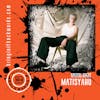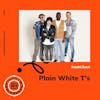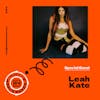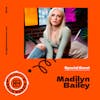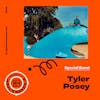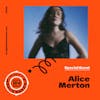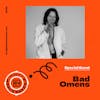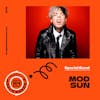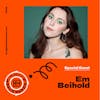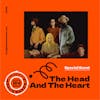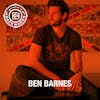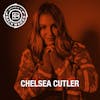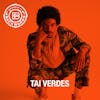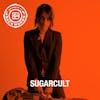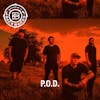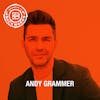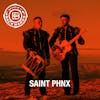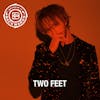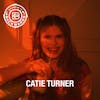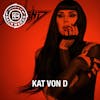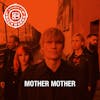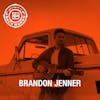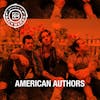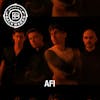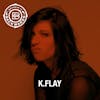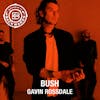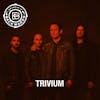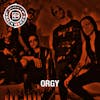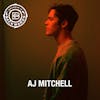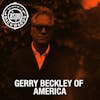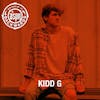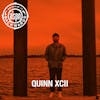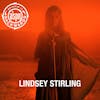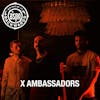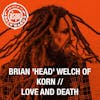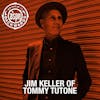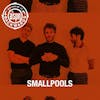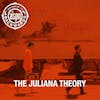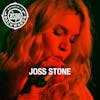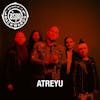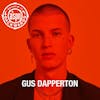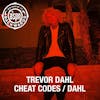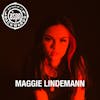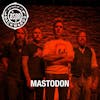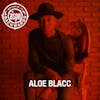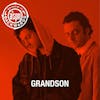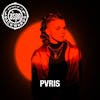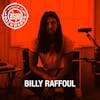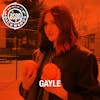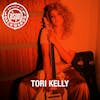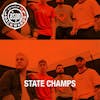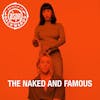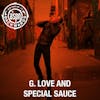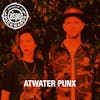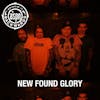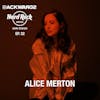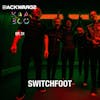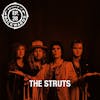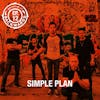Interview with Duncan Laurence
We had the pleasure of interviewing Duncan Laurence over Zoom video.
Duncan Laurence shared the official video for his new single, “Electric Life.”
Shot in Amsterdam, the sepia-drenched video blurs the line between heaven and earth as Laurence,...
We had the pleasure of interviewing Duncan Laurence over Zoom video.
Duncan Laurence shared the official video for his new single, “Electric Life.”
Shot in Amsterdam, the sepia-drenched video blurs the line between heaven and earth as Laurence, clad in a gossamer white shirt, performs the song alongside a troupe of choreographed hands, reaching out to support and encourage him from another world. Like the song, which features dynamic, colorful production inspired by ’70s icons like Elton John and Queen, the celebratory clip is imbued with a sense of joy.
https://www.youtube.com/watch?v=PsT4t0toY90
Laurence won the Eurovision Song Contest 2019 with “Arcade.” The song took the #1 spot on Spotify’s Global Viral chart on release and ultimately took off on Tik Tok with now over 56 billion views on the platform. Combined global streams of the song across all platforms have surpassed 10 billion and the single has attained Gold/Platinum certifications in 37 countries, including Platinum in the U.S., where it was a top 10 hit at Adult Contemporary radio. Placing in the top 30 of the Billboard Hot 100, “Arcade” was the first Eurovision Song Contest winner to enter the prestigious chart in 45 years.
“Arcade” was re-released in 2020 a new verse featuring FLETCHER. Working with women, particularly members of the LGBTQIA+ community, is a priority for Laurence. His crew on the visual for “Electric Life” and other forthcoming singles, for example, is composed predominantly of women.
“Electric Life” is the first track to be released from Laurence’s sessions with his fiancé, songwriter Jordan Garfield, and producer Paul Phamous (Frank Ocean, Nick Jonas). His ultimate goal with the song is to promote healing. “I want people to find comfort when they listen to it,” he says. “I want them to think of that one person that they really miss and celebrate them.”
We want to hear from you! Please email Tera@BringinitBackwards.com.
www.BringinitBackwards.com
#podcast #interview #bringinbackpod #DuncanLaurence #arcade #electriclife #NewMusic #zoom
Listen & Subscribe to BiB
https://www.bringinitbackwards.com/follow/
Follow our podcast on Instagram and Twitter!
https://www.facebook.com/groups/bringinbackpod
We'd love to see you join our BiB Facebook Group.
Hello! It is Adam. Welcome back to bringing at backwards a podcast where both legendary and rising artists tell their own personal stories of how they achieved stardom. On this episode, we had the chance to hang out with Duncan Laurence over zoom video Duncan was born and raised in the Netherlands and talks about how he got into music. Grew up in a very small town. Only about 20,000 people grew up playing Oregon. And then obviously went on piano, started writing songs at a fairly early age and going to college for music. And when he was in college, that's when he wrote the song arcade. He talked about his time on the voice Holland, submitting to Eurovision and winning Eurovision, the Eurovision contest for 2019. 6 (2m 42s): I know, you know, the song arcade massive billions of, of plays on that one. We also hear about the new song and album Duncan, Scott coming out, his latest single's called electric life, and he talks all about it. You can watch our interview with Duncan on our Facebook page and YouTube channel at bringing it backwards. It would be awesome if you subscribe to our channel like us on Facebook, follow us on Instagram, Twitter, and TikTok at bringing back pod. And if you're listening to this on Spotify, apple music, Google podcasts, it would be awesome if you follow us there as well, and hook us up with a five star review, 7 (3m 20s): We'd appreciate your support. If you follow and subscribe to our podcasts, wherever you listen to podcasts, 6 (3m 26s): We're bringing it backwards with Duncan Laurence. Awesome. Awesome. Awesome. Yeah. So I'm Adam, and this is a podcast about you and your journey in music. And we'll talk about obviously the, the new record electric life, which is awesome. I love it. 8 (3m 42s): Thank you so much. Thank you. Thanks for taking the time. 6 (3m 45s): No, thank you. So, first off, where were you born and raised? 8 (3m 49s): I was born in a small town in the Netherlands called spike Anissa, which is like in the middle of nowhere. Basically. No music, no like theater, nothing. So I had to travel very far to get into music, but I did it eventually SP son, not of named to remember. 6 (4m 12s): Okay. Well, I mean, growing up, did you have an interested music or your, your family musical at all? You come from musical household and any capacity? 8 (4m 20s): So my, my grandmothers basically took a lot of care of me because I, my parents got divorced when I was three. So they had a hard time just, you know, having to get money as a single parent now. So I spent a lot of time at my, my grandparents and they had this big old electric organ that I used to play on and I tried to play it and like, as a piano kind of, cuz I didn't really know what everything else was doing. Like the basic things and stuff. So I kept it pianoing and my grandma did teach me a couple of things, but what I did all day long basically was listen to the radio and just tried to mimic whatever I heard. 8 (5m 1s): It must have driven my grandparents crazy because nine outta 10 times I wasn't that good cuz I was still four, but yeah, that's how I got in touch. Yeah. Yeah. Yeah. 6 (5m 11s): But I it's four to sit down and want to and have just the interest in, in the piano and then listening to a song and then try and replicate it. That's really 8 (5m 21s): Cool. I always, yeah, I think, I don't know why I did that. I just really liked the feeling of whenever I was able to copy something. It just make me happy. Just trying to figure out things myself was always just kind of made me happy, but yeah, like I said, it must have driven my grandparents crazy, but I was four. I was so small. That's the reason why I couldn't reach those base notes and stuff. That's the reason why I only played like piano 6 (5m 48s): Cause with the Oregon. Right. It's like a, there's a step. Is there two levels of keys? Correct. 8 (5m 53s): So there's two levels of keys and there's a third level down on the ground, which is the base notes. And then most of the times you'll see those people like that play organ, like play along to kind of a beat kind of thing where they can like do a beat on it and then they play the base with their feet. They play like kind of like the lower, like more, how do you say it's almost like longer notes kind of with the lowest sets of keys and the higher one is for the, the melodies melodies. That's like the annoying sounding one. That's the one I played. 6 (6m 31s): Oh wow. That's cool. That's cool. Did she ever pick it up? Like, can you play an organ now? Like if you were to sit down and do 8 (6m 37s): Yeah. For sure. 6 (6m 38s): Oh, that's 8 (6m 39s): Killer. I think so. Yeah. I think I would have to like, you know, get to you like get to know it a little bit, like with the whole feet thing, but I, yeah, I think I could do it. Yeah. 6 (6m 49s): That's cool. I was whenever I, 8 (6m 50s): I have no intention to though. I was 6 (6m 52s): Gonna say it's, it's such a sad sounding instrument, man. It's like, wow. 8 (6m 57s): That's the reason why all my songs are sad probably, 6 (7m 0s): But your songs are up like sad. But like, I mean, especially the new one, it's got more like this groove, like that's true positive, you know, uplifting groove to it. 8 (7m 12s): That's right. I think, I think part of the reason why my songs are a little bit set, but with the hint of hope is partly because I really loved the set sounding instruments and songs. I always like was drawn to them, but I was bullied since I was four till like 18. So basically like music was my safe Haven and it was my way of finding hope, like creating this world in which I could just be myself. So whenever I write music right now, I just always like to add a little bit of sense of comfort or like hope to it. 6 (7m 49s): Wow. I'm sorry about the bullying. That's very, oh, that's, fine's not. Yeah. 8 (7m 57s): It's okay. It made me into who I am today and I, I mean like, you know, it's, it's rough when you go through it, but I, I think I actually took a lot of steps and like, you know, I, I I'm, I'm good now. I, I can still do what I love. I can reach people that are potentially bullied as well. Maybe where like are, are in the same kind of situation and just, you know, show them that if I can do it as this small town boy from the Netherlands, then they can chase their dreams as well. So it taught me a lot. 6 (8m 28s): I love that. I love that. And, and the bullies I'm sure are gonna be the ones that would be trying to hit you out for tickets to go see you live are like, can you introduce me to, you know what I mean? Like where did they, that's what always funny to me, just like where, where do they end up with like the kids that are getting bullied are, 8 (8m 44s): You know, honestly, I'm gonna give you the sensor ever. 6 (8m 47s): I got 9 million Spotify, monthly listeners. I have no idea. That is the best answer. 8 (8m 53s): I have no idea where they are. I honestly, I hope they're happy, you know? Cause if you're happy, you won't wake up starting bullying someone. But like, Hey, that's, that's all I need to know. 6 (9m 5s): Right. Exactly. Yeah. 8 (9m 8s): Wow. Okay. So I moved on. 6 (9m 10s): That's great. I'm yeah. That's great. Well, from, from the Oregon, what did you pick up piano lessons or did you, was that the instrument you continued to? Okay, so piano lessons. So 8 (9m 20s): Yeah, and I started singing at a very young age too. I remember that like, I always had like a lot of people gather the garden because I just did these whole like performances and stuff. So I, I, there was something with me and music. I started musical theater after that theater school, dancing classes, acting classes and singing classes. So that's when I got in touch with like using my voice as an instrument. And at the same time I started playing the piano because I think my parents and grandparents were a little bit done with that organ. And we're just like, well, that's move it up one level. 6 (9m 59s): Okay. Well, how do you go? I mean, how many people are in your town? You said you come from a very small town. Like, what does that look like? Population law. 8 (10m 6s): So I think it's like 20,000. It's like, it's still like kind of a lot, but it's not a lot, lot. 6 (10m 13s): No, that's not a lot at all. I mean, I had over, I had like 1500 in my high school graduating class. Like if you think of 20,000, like that's right. 8 (10m 21s): That's like my God, that's so many people 6 (10m 24s): A lot. I mean, that's not a whole, you played shows to over 20,000 people. I'm sure. 8 (10m 32s): Oh my God. Yeah. Now that you say that I have never realized it like that. That's crazy 6 (10m 37s): Actually. Isn't that nuts. I mean, everyone in your entire town can come see you and you're like, and then you need to add more people. Yes. For sure. 8 (10m 46s): They 6 (10m 47s): Still wouldn't fill it up the venue. 8 (10m 49s): I never thought about it like that. Actually. That's a really good way of like putting it into perspective a little bit. Thanks for that. 6 (10m 56s): Oh yeah, of course. That's so crazy though. Like, okay, so you're in the small town and then what you, you know, you learn piano, are you right when you start writing songs? 8 (11m 5s): So I started writing songs when I was about six or seven. I think when I, honestly, my first like thing that I wanted to do was compete in the junior song contest with just Eurovision for kids in Europe. Oh, I wrote this horrible song. So I never got to, like, I never got picked, but ever since I kind of was like, I like creating stuff. I like like telling stories with music because at the same time I was like studying musical and like theater and it was all like very much in a role. This really allowed me to just be myself and explore who I was at the age of seven. 8 (11m 46s): Can you imagine these things were running through my head? I was so isolated from being bullied that I spent a lot of time just trying to create my own stories in my own world. And that's when I really fell in love with music, but I actually fell in love with the power of music. Like I always say at the age of 14, when I performed for the first time in front of all of those bullies at this high school performance that I organized with a couple friends for the Sri Lanka tsunami back then, and we wanted to raise money and I was like, you know, Duncan, there are people out there that have it a lot worse than you go on that stage and show, you know, do something, you know, and ever since I've been trying to find ways to use music for the better, 6 (12m 36s): That takes a lot of courage, especially, you know, it does coming from being bullied to, okay, I'm gonna get on this stage and, and I'm gonna perform for all the people. Like, were you nervously gonna be like, yeah. Backlash or not backlash, but like for sure doing and all, you know, like just kids being horrible. Yeah. 8 (12m 52s): Yeah. I know. Yeah, because kids can be really horrible. I mean, oh man. And super honest. And it's just, I think that I was super nervous when I went on and the moment that this, I started playing the song because I was playing on the piano and singing at the same time. And it was an original song, I think, I believe, yes. The first time was more 6 (13m 12s): Vulnerable. 8 (13m 13s): It was just, it was so scary. But at the same time, I was like, you know what? This is my chance to show everyone who I actually am because for years they haven't even looked at me or like, you know, they really pretended as if I didn't exist. So it felt like this was my moment to show them that I was valuable and that I was worth it of attention at least, you know? So, and at the end of that song, everyone stood up and applauded, including the bullies, including the people that never have seen me. And that was the moment when people started realizing, oh, Duncan is a little bit cooler than we think he is. And, and then I also just like, in that moment, I, I realized if music can do this for me, what can it do for me and for others in the future? 8 (14m 3s): You know, I, I should make this, my, my job, cause this is what I wanna do. I, I got addicted to it in that moment, 6 (14m 12s): For sure. That sounds like a movie scene. You know what I mean? Like you get up there, the bully kid plays and then all the, all the bullies are like, oh, like he's cool now. Like, 8 (14m 21s): Yeah, I've been, I've been really wanting it to like write a song about that moment and to put it into like a video clip. Yeah. But every time I think of it, it just turns into this really teenage high school picture that I'm picturing. And then I'm like, yeah, nevermind. 6 (14m 40s): I'm good. Yeah. So when you, you, you tried out or you were on the, what was it X factor of in, in another? 8 (14m 50s): I did the voice. Oh, the voice. Sorry. I did the voice of Holland. Yeah. I did it when I was like 18. I was studying at the rock academy and everything was so Thea, the theoretical, sorry. Okay. Theoretical. And I was just like, I need some network. I need to get to know people. I need to show myself. So I did the voice kind of as a showcase to show the Holland who I was. And then after that I studied for a couple years and then I got asked to participate for Eurovision. 6 (15m 21s): Okay. Wow. Well, what, what was the rock? Was that like, that's just a music school. 8 (15m 27s): So the rock academy is a music school in the south of the Netherlands, which is a conservatory. So it's like an actual university for music. Cause when I 6 (15m 37s): Hear used to be, oh, was it okay? 8 (15m 39s): Yeah. So it used to be only rock bends that would go there and study there. And now they slowly transitioned into this pop meets, rock meets every, every single genre you can, you can study there. There's like studies from rap to music, producing to EDM, to arrangements, to whatever you want. It's there. So it's a great school, but it kind of felt like I was living in a rock and roll version of fame the old time. So yeah. That's when, why I also decided to kind of spread my wings out of those four safe walls and just like explore the world a little bit. And that, that was the step, the voice of Holland that I 6 (16m 21s): Took. Okay. When, when you were attending that school though, were you interested and were you performing and writing like rock songs? It doesn't sound like, you know, your music now, obviously. 8 (16m 31s): So I'm super, I'm a super emo kit. So I used to like listen to pair more green day fallout boy, 6 (16m 38s): That's my, that's my stuff. Okay. 8 (16m 41s): I love it. And it, it raised rage against machine. Like I went very far even to like Christian hard rock, screamo, bends, like fly leaf. I did it all, but I, I always was drawn to like a rock and roll kind of way of, of being an artist, being, performing, writing songs, like not really caring too much about stuff, but just letting things be the way they are meant to be kind of that's my version of rock and roll. So yeah, that's what I learned from like rock and rock music and stuff. But I don't think, I do think there are some influences there. I don't think they're very like prominent within my music, but it does shape the music that I make a little bit. 8 (17m 27s): Yeah. Still. 6 (17m 29s): Sure. Sure. So you get in that school, did you have to like audition to get in or 8 (17m 35s): Yes. For sure. There's only six people. I think that get elected every year per class. So it's, it's not a lot. Yeah. And there's like thousands of people that want to study there. So it's a crazy thing to think about like, yeah. That 6 (17m 52s): Huge that's valid. I'm sure. You're you're you're I bet you, yeah, that had to be like a validating moment. Like, oh wow. I should be doing this. Like I got, I just got 8 (18m 1s): Its yeah. I went from like, no one ever like really paying attention to all of a sudden being one out thousands to apply and attend a school. Like it was, it was just, it was a dream come true. Literally. 6 (18m 17s): That's so wild. What did you do to audition? Did you perform a song or do you remember? Yeah, 8 (18m 23s): So I performed three songs and I did a theoretical test and I had to like really convince them that I saw like a motivational speech, like, like almost like a motivational conversation that you need needed to do. Like where do you want to be in five years and 10 years of this and that. And I remember saying, well, I want to be the first artist in the Netherlands that tries to like, hopefully get a worldwide audience through Europe. So not through the us or the UK. And I was in the first, like I wasn't even attending this school. So I had no idea of like marketing or branding or whatever. And I was sitting there just saying like, I'm gonna be a European artist that will hopefully break through to the world. 8 (19m 8s): And it happened, which is, I was 6 (19m 10s): Say, wow, that's like some vision board. Like I 8 (19m 13s): Know it's all about manifesting, throwing it out into the universe, took me a while to realize that. But yeah. As long as you keep your mind focused on something, you can actually get there. And it's crazy actually to think about that. 6 (19m 26s): That's wild. Okay. And so, well what was your time on the voice Holland? Like was that experience? I 8 (19m 33s): Thought it was horrible, 6 (19m 34s): Honestly. Okay. 8 (19m 36s): I do not like singing covers that much. I thought that it was a nice experience. It was a nice thing for me to like showcase myself, to show people, Hey, I can sing. I want to be an artist one day, but I have never seen it as my actual like breakthrough moment. Never my breakthrough moment came years later when I participated Eurovision with my own song as my own artist. 6 (20m 5s): Yeah. And I'm I've and I've interviewed and spoke with other artists that it went through, you know, the voice or American idol or whatever. And they are almost more excited that they didn't get far, far, far in it. Like, I don't know how far you got it, because then it's like, you're attached to that. Right. And it's like, oh, it's, it's dunking from that's the voice. And you're like, it true. You though. Well, I'm not that like, that's not me. Yeah. Like this is me. And the fact that you were able to do that with your own song. I mean that, what a, what a insane achievement. 8 (20m 36s): I mean, it's, it's been crazy because I, I really took the voice as, like I said, a showcase moment. Then I went backstage to like kind of write songs, develop myself. I switched from being Duncan to Duncan Lawrence. That was a big, big decision for me because within that, I finally allowed myself to be the alter ego artist that I wanted to create rather than just being Duncan from the voice who thinks covers. So there was a big swift happening there which was super nice to be working on for those years because it was between the voice and Eurovision. It took about five years, four years for me to like study, really develop myself, write songs. 8 (21m 17s): I mean, I was 17, 18 when I did the voice. And then yeah, a couple of years ago I did Eurovision. Yeah. It was a 6 (21m 27s): When you won it. So it wasn't very long ago. 8 (21m 30s): No, no, I'm still young. I look old, but I'm young. 6 (21m 34s): You don't look old, man. I'm old. 8 (21m 39s): I don't mind. 6 (21m 41s): No, you don't look at all out. So, so in those years, you know, from going from, I just kind of probably staying away from the title of the voice Duncan. It's like, okay, I don't want to do with that. But like when you're writing these songs within those five years, like there must have been moments of like little milestones or little spikes of validation that keep you moving forward. Cuz I would imagine in five years, if nothing's going on, like to then apply for Eurovision, like what were, do you have any like memories of little things that happened to kind of keep you going up until submitting arcade? 8 (22m 18s): So you know what it is with music and a lot of the time with like art is that one to make it even like, you know, the, the, the fact like making it is like, if you depend too much on successes within numbers and like statistics and everything, you kind of get worn down a little bit. And I always try to not focus on that. And I always envisioned, if I am gonna be an artist, I want everything that I do to be beautiful. And I wanted to touch people in a way like where it's like hopeful for them or it, it just like reach out to them and touch them. 8 (22m 59s): And hopefully through that, create this international artist and be able to play wherever I want to play. I didn't care if that was 20 people in front of me. I still don't care if it's 20 people or 20,000 people in front of me. I want to do this because I want to tell a story and I want to connect with people. And I think that has gotten me through all those years of not really having any success as you call it in the music industry with numbers or statistics. But for me it was very successful because I grew from a small town boy who did the voice of Holland like a country that everyone kind of knows, but everyone kind of says like, oh, so you're from Amsterdam. 8 (23m 43s): So that's how many people like really know what Holland is, you know? And I was able to transform myself into someone that could potentially reach an international artist within those five years. And something inside of me kept telling me that I was on the right path. Even though things didn't click right away. I knew that I was doing it with my whole heart and I'd rather do something with my whole heart and make something absolutely beautiful that I think is absolutely beautiful. And that needs to be seen by the world than just focusing on little spikes and stuff. I was just very focused on, this is my end goal. 8 (24m 25s): This is who I want to become. I want to become Duncan Lawrence. So that was the drive for me all those years. 6 (24m 32s): Okay. So it wasn't yeah. You not without looking at numbers or anything, it was just, you knew at some point it's gonna, it's gonna hit. 8 (24m 40s): I think I always like kind of convinced myself if you do everything the best you can and you deliver quality and you deliver something good, there will be a time in your life where people look at you and say, I cannot deny that this is good. What you're doing. I cannot go around it anymore. As we say in Dutch. And that's what I always keep in mind, you know, that's how I make music. That's how I deal with like people now that say like, oh yeah, arcade was a huge success, but what about no? Like kind of like, Ooh, like you need another hit. And I'm just like, nah, no, it's fine. I'll just do my own thing. 8 (25m 21s): As long as I can reach people, create an audience, like, like reach an audience. I mean, like create this community that is sticking together and that is listening to my music and hopefully getting inspired from it. I'm okay. And I'm doing my thing, you know, 6 (25m 37s): I love that, but it's not, it's funny that you said like, yeah, you know, okay, was this you hit now, but, but it's like the, the fact that people bought your record or streamed your record in like entirety, right? Like it's not like you'll see some artists where it's arcade, you know, you know, a hundred, a billion streams. And then like the next 15 songs on the record have like, you know, 10,009, like almost all the, the whole album is, has millions of streams. It's 8 (26m 6s): It's, that's true. So that 6 (26m 7s): Respect you're right. To like, it's not just looking for a hit, but you have no, all the songs are hits. Right? 8 (26m 15s): Yeah. You're kinda right. It's really hard for me to see that I've always, don't that mindset, you know, like I've always had this mindset of where I was like, I just wanna create whatever. Like I just wanna tell stories, you know, and maybe one story will be re heard by more people than the other one, but they're equally important to me. Every song is equally important, but I won't deny the, the feeling it gave me of, of seeing how well our cake did, how popular it was. The, the story that I I put into our cake was super personal. So to see that go all over the world and being shared by millions, billions of people is crazy. 8 (27m 1s): I think that we're at 10 billion right now and still rising. It's just insane. So yeah, of course, like there's always two things, you know, to see, of course there's like this, I am enjoying very much what is happening with arcade and at the same time, I'm always trying to see things very realistically. And just to, yeah. Just to really build this long career out of the success that I'm having now. 6 (27m 26s): Sure. Yeah. It's not a, a one and done for you where you'll see that with artists where if they have that viral moment and then it's okay. Now, what are you gonna do? Like you building this career, the, you had a record before or an EP before you even put out small town boy, then that does, you know, insanely well. But the Eurovision thing just kind of happened to land, I think at the right time, especially the song too, like 8 (27m 53s): With, I think so 6 (27m 54s): Tell me about that. So just, I wanna move on to your new one cause I love it. And, and I, I really wanna hear the story behind it, but I just wonder just quickly on the, when we're on the arcade was just that when you wrote that song, was it like, okay, I know this is really, really good. This is the song I wanna submit it to Eurovision. Like what was that like thought process and how did that work? 8 (28m 16s): So I had the song for two and a half years already when people reached out to me and said, do you want to do Eurovision with it? I never thought that I would do Eurovision because I've always been like, I've always seen very famous people go to Eurovision before. So I had never really had there wasn't a story of an unknown singer with just a song going to Eurovision for the Netherlands. So this was the first time that happened. So for me, I, I was just like, wait, are you kidding? Like I wrote this song two and a half years ago. This is the song that I want to put out as my first single with everything, you know, I, I had this whole EP album, everything prepared. 8 (28m 57s): And then I was like, okay, well, if I can put this song and out, and I can have a super big platform to promote it, of course I will do that. Like, that's the, the, the best thing ever. So right. Things really combined. I already wanted to put out arcade as my first single, but then, you know, I just waited a little longer until, until we like, you know, really finished it up, everything was just done. And then all of a sudden I got this message in that time while I was wrapping up and like preparing for a release already, and everyone was like, hold your horses just, just for a little longer, because actually go into Eurovision. 8 (29m 38s): So let's push this release a couple of months and yeah. And then I, then I did and I performed it on Eurovision and it went super well and I won 6 (29m 48s): That's so wild. And you were the first person to win from, from Holland. What? In, 8 (29m 53s): From in 45 years. 6 (29m 54s): Yeah, I was gonna say nearly 50 years. That must have been so crazy. What a big moment 8 (29m 60s): It's been so crazy. I mean, like I remember writing this song in my bedroom at the rock academy, like in this little study room, like just like going back and forth between those two, trying to figure out what I wanted to do with the, what I wanted to tell it's it's, it's been insane to move from that like literally a small town boy that is already thinking that his dream came true studying at Iraq academy, you know? And then one 6 (30m 31s): Of 8 (30m 33s): It's like 200 million viewers and that's yeah, 6 (30m 38s): One, yeah, one of six out of the X thousand that are trying out for the school. And then you go to, you know, the big leagues and then win, win a know that's yeah. Such a cool story. Such a cool story. Thank you. Especially coming from a small town and, and probably not seeing people achieve that sort of success outta your town. Never 8 (30m 59s): Even in my country, it was never really a thing. We have a lot of EDM music. We have great DJs in the Netherlands, Martin GARS Cheto Armin van. They're all amazing. But to see an artist go internationally has been maybe also 45 years. Maybe it was our last year of vision win that this pass. I remember like dance back in, like when that I used my father used to listen to like golden earing and stuff that did well, but no, there wasn't an example, which is still really crazy to think about that. I'm the first artist, the first Dutch artist who is making an international path for himself, like an international career. 8 (31m 48s): It's crazy. But I also can feel that within the Netherlands, I don't live there anymore, but every time I come back, I can feel that a lot of my artist friends and like artists that I meet are just like really, really inspired and really triggered and really want to fight for that as well. So yeah. It's, it's cool. Finally Holland like gets the spotlight. That it's deserved thing because there is a lot of cool talents out there. 6 (32m 13s): Yeah. That's gotta be, feel real good. Now all these other kids coming outta your town and in your area looking at yeah. Like dunk Duncan, Laura, he lived here like, look at where he is at. He came out of this little sound like so much hope. I like that. 8 (32m 26s): Oh my God. It's it's crazy. I even got my own backstage door in this huge arena, like my own. There's just crazy. Yeah. 6 (32m 38s): That's so, so cool. And, and just like, and just in Eurovision in general, because I'm, I'm here in the states, a lot of people that win the Eurovision don't necessarily go on to achieve even next level fame. Right. I mean, to break here in the United States to have a song so big that like my 14 year old that's on TikTok all the time is like singing it while we're like, just, just cuz he's hearing it. So, I mean he likes it song, but it was like, he knew song just from like flipping through his four U page. I mean, to, to that's true. Expand to the level of now you're a, a hit in the us, which you didn't even, that wasn't even part of your spiel when you went into the college. 6 (33m 19s): I mean that's so you're probably the only one, right outta Holland. That's done that. 8 (33m 25s): Yeah. Even, 6 (33m 26s): Probably outta Eurovision. I can't think of anyone. I mean not a whole lot. So 8 (33m 30s): I mean, of course like the year after me or two years after me, because of COVID there was one like extra year in the middle where there wasn't a Eurovision the year after me, there was Monkin. So there, I do have to say that. Yeah. They, they did very well, although they were super famous already within their own country and like in multiple countries. Yeah. 6 (33m 52s): They're already kind of a big, a big deal. They were huge. And they went, I remember hearing about that, that, 8 (33m 57s): Which I didn't know. So I was like, holy shit, who are these guys? They are so fucking cool. Yeah. But then like, you know, they, I think that it's yeah, like you said, it's not necessarily a common thing at all for a Eurovision winner to, with the song that is on your vision to like, you know, explode worldwide. Like it happened with arcade. No, it's, it's really crazy. 6 (34m 27s): So awesome. Well tell me, okay. Electric, life's the new song. I love it. Yes. I think it's it's thank you. So good. Talk to me about this song. How is it put together when you write it? Everything that goes along with it? 8 (34m 40s): So I, I write everything with my, with my fiance, Jordan Garfield, we write everything together. And I remember that we talked a lot about wanting to write a song that kind of puts remembering people who passed away in like a super positive perspective. We wanted a song that you could turn up and just listen to close your eyes and just sway along to, and just feel and miss and be with that person for a second. And I remember this line that Jordan said to me, where he was like, I think if we remember people in a positive way, we bring heaven a little closer to earth. 8 (35m 20s): And that inspired me so much that I was like, yeah, we're gonna write this song. And we, we met up with, we had a few ideas and the bits pieces like here and there already, we met up with Paul famous and lyric Clemett. And in that session we started off with a coffee and then talked about like automatically started talking about people that passed away. And I was like, oh, let's bring that idea in that we had a couple of weeks ago and things combined so nicely. I mean, we started writing the verse, the beat came in, Leo started, the producer started playing that beat. And that all like, kind of brought us to this new level of, of hopefulness, of like experimenting with sounds that I hadn't experimented with before. 8 (36m 8s): Cuz my songs before were quite mellow and I wanted something new. I wanted fire for album two. So that's what happened and things just came together and the song was born in 45 minutes and it's there, it's out there. 6 (36m 24s): Well, it still kind of starts off though on the piano. It's not like it doesn't get like right into it. I mean it starts off that's true. And then it builds and it's but then it, obviously it's not like a slow burn, it picks up quickly, but it still has special 8 (36m 39s): Elements thing that 6 (36m 39s): Is happening. Yeah, for 8 (36m 41s): Sure. Sure. Yeah. It's like I wanted to create this bridge between old Duncan Lawrence and the new one and I think electric life fits so well as a gateway from going to one sound that people already know that dreamy arcade vibe into kind of a new evolution that I was really, really hoping for. And, and a lot of the, the inspiration we had was taking from the 17th, the early, early seventies, Elton John queen, the Beatles. I really just wanted to, you know, throw everything on a big pile, all the music that I listened to, the artists that I admired and combined that with arcade and just shake it up a little and then, you know, make a song out of it 6 (37m 28s): With such heavy like subject matter. Did you have, I mean, maybe it's just your personal, did, did you lose somebody close to you or did your fiance lose somebody close to him? Like recent enough to where it was like, oh, we should really pay homage to this or was it just kind of a feeling that came? 8 (37m 45s): So it was a combination. I think that there was, there were indeed stories. I don't want to speak for the writers, but there were indeed stories that were shared and they were very inspirational and yeah, that was, that was definitely in that moment. The trigger for us to write this song also for each other, as songwriters kind of the song that we could, the four of us could, you know, listen to in moments where, when we needed it. Luckily I haven't lost anyone for a while now, but I did lose a bunch of people when I was young. So yeah, I do know the feeling, but it was mostly the combination going from a personal to a universal feeling as you evolve from, you know, talking about it, me and Jordan talking about it to going into a room with other people and then sharing that same feeling of wanting to remember everyone in a positive way, rather than looking back negatively, constantly. 8 (38m 48s): It was just needed. I think for all the writers that were in the room and therefore we thought that it was needed for the world to have a 6 (38m 56s): Bit of hope say, I think I, I, I agree with that. Totally. I mean, it's definitely something that can relate to everyone, whether it's now or if not now soon, or hopefully not soon, but you know what I mean? Like at one point or another you're gonna lose somebody that you love or, you know yeah. And to look at it, to frame it, the way you you did is, is, is amazing. It's a beautiful thing. Thank 8 (39m 19s): You. Thank you. I'm super proud of it. I'm really happy. Like fans have reached out to me and said, it's like listening to your song for the first time was like driving in my old mom's like in my, my mom's old car and I was like, this is exactly what it should be. This is exactly what we tried to like driving in that car, thinking about your mom, almost feeling her sitting next to you. That is what we wanted to achieve. And I, I, I totally agree with, with the universal perspective of this story, which I always wanted to do within my songs. I also did it with arcade. I wanted to turn the personal message into a universal story that we could all relate to as humans. 8 (40m 2s): So yeah. Thanks for saying that. Thanks. 6 (40m 5s): Yeah. I love it. I love it. And you said this is gonna bridge a gap from small tomboy into a newer chapter of Duncan learn. Yeah. Does that mean you have a album you're working on the project? Can you say anything about that yet? 8 (40m 20s): Yeah, for sure. So my, my album is on the way it will be released spring next year. Amazing. So in the meantime there's a bunch of singles coming. Yeah. I'm super excited. We're I'm, I'm just Jordan and I just really dove into this dream world that we created ourselves. Like I did when I was young, when I got bullied, when I tried to like make my own world where, which, and I felt safe and we did that during lockdown and a time where we felt very unsafe and like everything was happening at such a bit, you know, fast paced and, you know, everyone felt like that. I think so we created our own bubble and our own world again. 8 (41m 0s): And I went back to my roots, I think because I was able to be in that safe space that I knew as a child very well too. So I went back to all those influences, like Elton John that I grew up with and queen and the Beatles. And it's been such a fun thing to just really focus on artists that made art music in the shape of art, rather than fast, quick trendy pop kind of music. It's been super deliberating to just, you know, be able to think of myself as potentially an artist that just makes music because he wants to make art. 8 (41m 44s): So yeah, it's been really cool to create this album. There's a lot of like, you know, different influences, a lot of old stuff, a lot of new stuff. It sounds very now it sounds very new. I'm very excited for it to come out. It's very personal and emotional, but very feisty and fiery. And then I'm super, super excited to perform at life too. 6 (42m 5s): Very, very cool. I love it. Thank you so much for doing this Duncan. Do you have, are you, do you have a tour date scheduled or are you looking maybe closer to when the record comes out? 8 (42m 19s): So actually I have a European tour scheduled at the end of this year, which is in October. So if you want to come all the way to Europe, you're more than welcome. But next year after the album is dropped, we are gonna like, we're going to announce some us tour dates as well. Exciting, which is super exciting. I 6 (42m 41s): Think I'll have to wait for you come to the us. Sorry. 8 (42m 44s): That's okay. That's okay. Just promise to take you, like take your kit with you because if he likes our then right, 6 (42m 51s): He does. Yeah, I have. And I have another one, a younger one who also loves music and every he's only six though. So we're gonna, I'll bring the whole, we'll all come out. That's so see you to your, yeah. I'm really excited. 8 (43m 4s): Amazing. You're more. 6 (43m 7s): Oh, thank you. Thank you. I appreciate your time. I have one more quick question for you. If you have any advice for aspiring artists, 8 (43m 16s): It's really just not being distracted by numbers, statistics, opinions from whomever. You can create your own vibe, own world, own bubble, your own artistry, these days more than ever with all the social media that we have. So stick to your gut, feel, do what you believe in and make it happen.
Featured Episodes
Here are some great episodes to start with. Or, check out episodes by genre.























